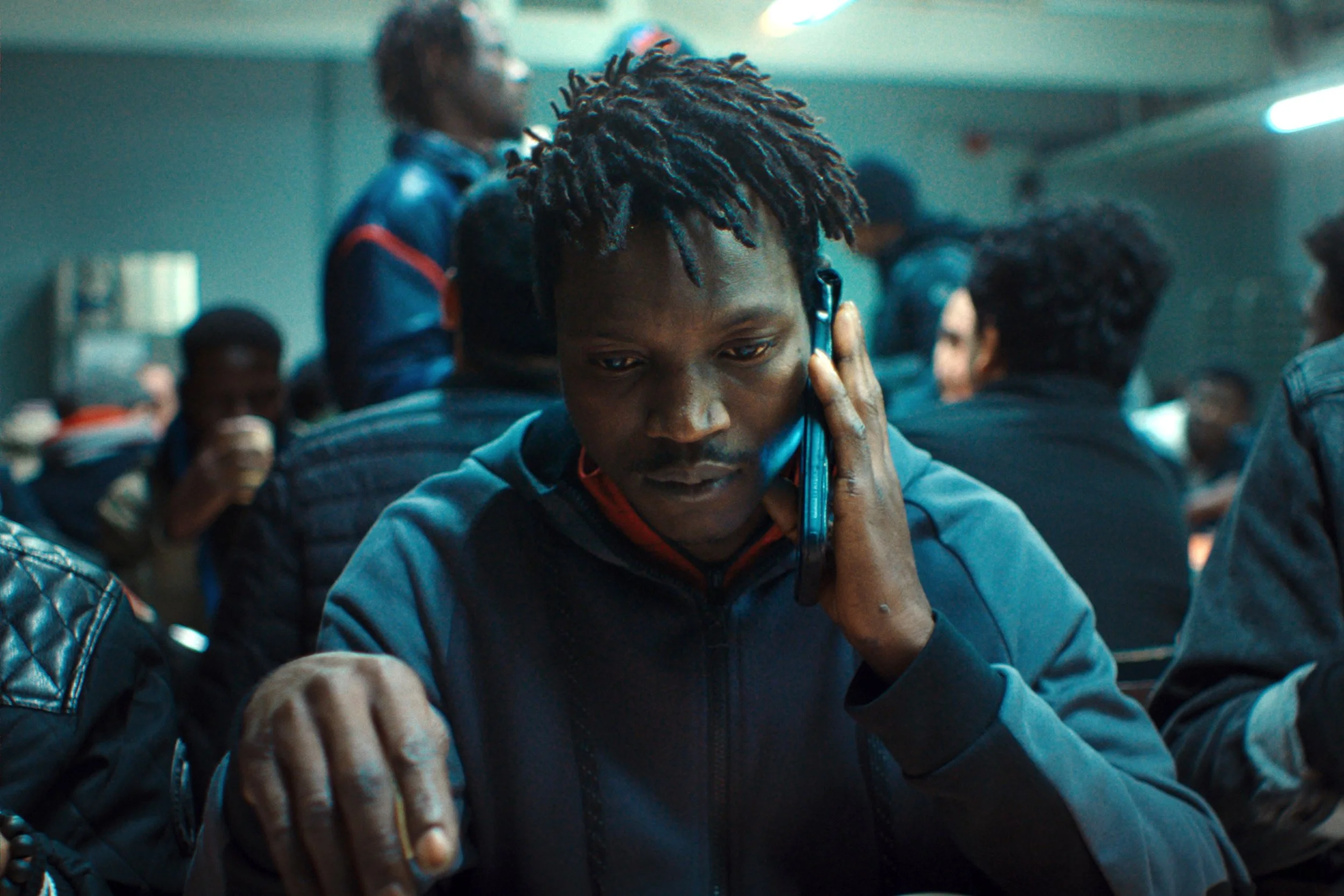Souleymane’s Story: An African Food Delivery Worker in Paris Makes Us Care
By Liam Lacey
Rating: A
What does it take us care about people we have never met? The simplest answer is to find a way to immerse yourselves in their daily experience.
It’s the time-tested approach of Vittorio De Sica’s hugely influential 1948 Bicycle Thieves, a stripped down drama following a father in post-war Rome as he seeks to recover a stolen bicycle, without which he cannot hold his job.
Abou Sangare in Souleymane’s Story
Boris Lojkine’s Souleymane’s Story, winner of a jury prize and best actor award in the Un Certain Regard section at Cannes last year, is solidly in that tradition. This lean, high pressure drama features an outstanding performance by first-time actor, Abou Sangare, as Souleymane, a food delivery worker recently arrived from Guinea, who hurtles through the night streets of Paris on an electric-bike, while trying to memorize the story he will tell to get political asylum.
Besides Bicycle Thieves, the film has a. strong affinity to the work of Belgium’s director brothers, Jean-Pierre and Luc Dardennes (Rosetta, Two Days, One Night),who favour the same over-the-shoulder vulnerable perspective on their characters. (Sangare was followed by a crew on three more bicycles, one for the camera, one for sound and one for crowd control.)
The artful minimalism pays off. Souleymane’s Story immerses us in an unrepresented world of African migrants in France with a ticking clock urgency that puts most thrillers to shame.
Co-written by Lojkine and Delphine Agut, the film is bookended by two scenes of Souleymane, seated with other applicants in the waiting room of an immigration office, waiting for his interview. In the first scene, he is brushing a smudge off the cuff of his gleaming white shirt — and revealing a fresh wound on his forehead. When his name is called, he walks down a hallway following a woman bureaucrat into her office, ready to tell her the story on which his future depends.
Then the film flashes back to two days before, where we plunge into Souleymane’s daily life, racing on his bike through the rain-soaked night streets of Paris, gathering food from the local cafés to apartment residents around the city, arguing with chefs who haven’t got orders ready on time, trying to reason with a customer who won’t accept the bag that was damaged when Souleymane was knocked over by a car.
His life is a whirlwind of deadlines until, at day’s end, he must race to catch the late-night shuttle bus that takes him and other men to a shelter. In his few spare moments, he makes brief phone calls back home to talk to his mother and fiancé, who tells him she has a marriage proposal from another man.
Deep in the rat race maze, there are a few glimpses of human decency: A free coffee from a kebab vendor, a candy from an Asian restaurant worker, and a feeble elderly man who, wastes Souleyman’s time by taking a moment to ask about the deliveryman’s life. But most people in the film simply look through him, including a couple of policemen who, while accepting their food order, explain they could make trouble for him if they chose to.
At the shelter where he sleeps, Souleymane cajoles and swaps information with other men, mostly West Africans from Guinea, Mali and Ivory Coast. But other fellow migrants also exploit him, like Emmanuel (Emmanuel Yovanie) the man who owns the food delivery account that Souleymane borrows, and who takes half of Souleyman’s earnings.
And most of Souleymane’s share goes to a fixer, Barry (Alpha Oumar Sow) a fellow Guinean who charges money to line up paperwork and coach Souleymane on his interview. Barry provides him with a story , a harrowing narrative of political persecution and torture that “the Whites,” or the officials at OFPRA (the French Office for the Protection of Regugees and Stateless Persons) should find convincing. This is the “story” of the title, one that Souleymane rehearses, like an actor preparing for his big audition.
The real-life story of 24-year-old novice actor, Abou Sangare, whose personal experience as an undocumented immigrant was incorporated into the script, might be the kind of inspirational tale Hollywood loves. Sangare was offered the role in an open casting call as the director was researching Guinean immigrants in France.
After his Cannes honour, he went on to win a most promising actor Cêsar Award (the French Oscar), one of four awards given to the film. He also gained legal residency after being hired for the film.
The film aims higher, concluding back in the immigration office, where Souleymane has his life-changing interview with a sympathetic, if jaded, OPFRA agent (Nina Meurisse). The dialogue between the two, which extends over the last 20 minutes of the film, is riveting, until the mad hustle of the previous action is concentrated in one powerful and personal monologue and plea for fellow human recognition.
Souleymane’s Story. Directed by Boris Lojkine. Written by Boris Lojkine and Delphine Agut. Starring Abou Sangare, Nina Meurisse, Alpha Oumar Sow, Emmanuel Yovanie, Younoussa Diallo, Ghislane Mahan, Mamdou Barry, Yaya Diallo, Dali Keita. Opens August 8 at Toronto’s TIFF Lightbox.



